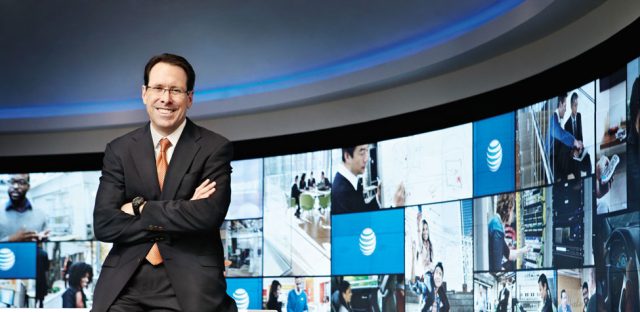
AT&T now says it isn't really going to halt a huge fiber investment because of net neutrality despite its CEO recently claiming the company would do just that.
AT&T CEO Randall Stephenson told investors on November 12 that "We can't go out and invest that kind of money deploying fiber to 100 cities not knowing under what rules those investments will be governed." Stephenson was referring to an April announcement in which AT&T said it would "expand its ultra-fast fiber network to up to 100 candidate cities and municipalities nationwide, including 21 new major metropolitan areas."
Because of uncertainty about net neutrality rules, Stephenson said at the investor event this month that it would be better to "pause" instead of proceeding with the 100-city investment. Construction in all 100 cities was never guaranteed to begin with, as it was contingent on municipal cooperation with AT&T.
The Federal Communications Commission wrote to AT&T about Stephenson's statements on November 14, asking for detailed information on the company's actual fiber plans. An AT&T spokesperson replied that the company would uphold a promise to build fiber to two million additional homes if it's allowed to buy DirecTV, and it would provide a more detailed response to the FCC later.
So in AT&T's more detailed response yesterday (four days after the FCC's requested response date of November 21), the company contradicts Stephenson's statement and claims that it was simply misinterpreted.
"The premise of the Commission’s November 14 Letter is incorrect," AT&T Senior VP Robert Quinn wrote. "AT&T is not limiting our FTTP [fiber-to-the-premises] deployment to two million homes. To the contrary, AT&T still plans to complete the major initiative we announced in April to expand our ultra-fast GigaPower fiber network in 25 major metropolitan areas nationwide, including 21 new major metropolitan areas. In addition, as AT&T has described to the Commission in this proceeding, synergies created by our DirecTV transaction will allow us to extend our GigaPower service to at least two million additional customer locations, beyond those announced in April, within four years after close."
Although Stephenson specifically said the company had to pause its 100-city fiber investment until the net neutrality debate is settled, Quinn wrote that net neutrality would affect only investments beyond that. The potential use of utility rules to regulate the Internet "injects significant uncertainty into the economics underlying our investment decisions," Quinn wrote. As a result, AT&T will pause consideration of any further investments, even for upgrades to DSL networks.
"While we have reiterated that we will stand by the commitments described above, this uncertainty makes it prudent to pause consideration of any further investments—beyond those discussed above—to bring advanced broadband networks to even more customer locations, including additional upgrades of existing DSL and IPDSL lines, that might be feasible in the future under a more stable and predictable regulatory regime," Quinn wrote.
Quinn provided further details to the FCC about its specific fiber plans, but the public version of his letter redacts that portion.
The FCC is considering whether to reclassify broadband as a utility in order to impose net neutrality restrictions on traffic blocking, discrimination, and paid prioritization, a step President Obama asked the FCC to take.
reader comments
84